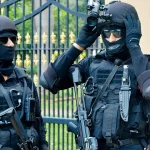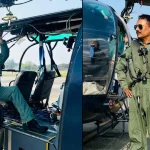Becoming an Indian Police Service (IPS) officer is one of the most coveted career paths in India. This prestigious role offers the opportunity to serve the nation, maintain law and order, and contribute to the welfare of society. In this comprehensive guide, we will walk you through the step-by-step process of becoming an IPS officer, covering everything from eligibility criteria to training and initial posting. We will also delve into relevant statistics and insights to give you a clearer picture of what this journey entails.
Introduction
The Indian Police Service, a significant component of India’s civil services, plays a crucial role in maintaining the rule of law and protecting the rights of citizens. As an IPS officer, one takes on tremendous responsibility—overseeing law enforcement in various regions, managing crime, dealing with public safety issues, and sometimes leading larger security operations. The journey to becoming an IPS officer is rigorous and demanding, requiring dedication, intellect, and tenacity.
While many aspire to this esteemed position, few understand the complexities involved in the selection process and the responsibilities that lie ahead. This guide elucidates the multifaceted journey, emphasizing each step to ensure that aspiring candidates are well-prepared for the challenges that await.
Historical Context
The IPS traces its origins back to the British colonial period, established in 1902 as part of the Indian Imperial Police. Post-independence, the Indian Police Service was reorganized, and its structure was revamped to meet the needs of a sovereign nation. The role of the IPS has evolved significantly over the years, adapting to changes in societal needs, technology, and regional dynamics. It has grown to encompass critical functions beyond traditional policing, including disaster management, counter-terrorism, and community policing, reflecting the country’s diverse challenges and ambitions.
The IPS now stands as a symbol of integrity, courage, and national service—qualities that are essential for effective leadership within law enforcement. This historical backdrop is crucial for understanding the significance of the IPS in contemporary society and the expectations placed upon its officers.
Step 1: Meet Eligibility Criteria
Before embarking on the journey to becoming an IPS officer, aspirants must first meet specific eligibility criteria:
- Indian Citizenship: Only Indian citizens are eligible for the IPS.
- Age Requirement: Applicants must be a minimum of 21 years old. The upper age limit varies based on caste categories—generally 32 years for unreserved category candidates, 35 for OBC, and 37 for SC/ST.
- Educational Qualification: Candidates must hold a Bachelor’s degree from a recognized university. This broad eligibility extends across fields of study, encouraging candidates from diverse educational backgrounds.
- Physical Standards: Aspirants must meet physical criteria as stipulated by the UPSC, including height, chest measurements, and eyesight requirements, ensuring that officers are fit for the demanding nature of the job.
Understanding these foundational criteria is essential, as failing to meet any one of these standards can disqualify a candidate from pursuing their dream of becoming an IPS officer.
Step 2: Apply for the UPSC Civil Services Examination (CSE)
To become an IPS officer, you must apply through the Union Public Service Commission (UPSC)Civil Services Examination (CSE). The examination is highly competitive, and the official notification from UPSC outlines the application process, important dates, and eligibility criteria in detail. Here’s a concise overview of the application process:
1. Online Applications: Candidates typically submit their applications online through the UPSC website, ensuring that they provide accurate information and required documents.
2. Submission Deadlines: It is crucial to adhere to application deadlines, which are usually specified in the official notification.
Step 3: Clear the Preliminary Exam
The UPSC CSE consists of three stages: Preliminary Examination, Main Examination, and Personality Test.
- Preliminary Exam: This is the first stage, consisting of objective-type questions that cover various topics, including General Studies and Aptitude Test. The preliminary exam serves as a filter, allowing only candidates who perform well to proceed to the next stage.
- Preparation Strategy: To clear this exam, candidates should have a structured study plan, covering the syllabus comprehensively. Relaying on books for UPSC preparation, taking online courses, and using mock tests are effective strategies. Engaging with the study materials provided by reputable sources like SSBCrack and SSBCrackExams can enhance your preparation.
Step 4: Appear for the Main Exam
Candidates who qualify for the preliminary exam move on to the main examination, which is the second stage of the selection process.
- Main Examination Structure: The Main Exam consists of nine papers, divided into two parts: qualifying papers and merit papers. Subjects primarily include one Indian language, English, Essay writing, General Studies (I, II, III, IV), and optional subjects.
- Subjective Test: Unlike the Preliminary Exam, the Mains is a subjective test that requires in-depth knowledge, analytical skills, and clear expression. This stage tests the candidates’ ability to articulate their thoughts effectively and demonstrate a comprehensive understanding of various subjects.
Preparation for the Main Exam should focus on developing strong writing skills, command over various subjects, and current affairs knowledge. Engaging with study materials designed for UPSC preparation can be particularly beneficial.
Step 5: Appear for the Personality Test (Interview)
Candidates who pass the Main Exam are invited for the Personality Test, which carries 275 marks.
- Interview Panel: The panel conducts the interview, typically comprising experienced professionals, including former IPS officers. This test assesses candidates’ overall personality, interpersonal skills, suitability for the role, and ability to handle pressure.
- Preparation for Interviews: Being well-versed in current affairs, understanding social issues, and reflecting on personal experiences can significantly boost candidates’ confidence. Mock interviews and preparation courses can prepare candidates to articulate their thoughts more effectively.
Step 6: Final Merit and Service Allocation
Once all examinations are complete, the final merit list is prepared based on cumulative performance across all stages.
- Ranking: Candidates are ranked in order of their total marks, and higher ranks improve the likelihood of being allocated to the IPS over other services.
- Preference and Allocation: College choices and vacant positions influence the final allocation of services. Candidates need to prioritize their options and understand the implications of their choices.
Step 7: Training at the Police Academy
After selection, IPS officers undergo rigorous training designed to prepare them for the challenges of their roles:
- Foundation Course (3 months): Conducted at the Lal Bahadur Shastri National Academy of Administration (LBSNAA), Mussoorie, the foundation course aims to develop managerial capacities and basic administrative skills.
- Phase I Training (11 months): Officers then join the Sardar Vallabhbhai Patel National Police Academy (SVPNPA) in Hyderabad. This training includes modules on law, policing tactics, fitness, and physical training—all essential for effective performance in the field.
- District Practical Training (6 months): Following the foundational training, candidates partake in hands-on experience in various police stations, learning the practical aspects of law enforcement and interacting with the local community.
- Phase II Training (1 month): The final phase at SVPNPA focuses on refining administrative and operational skills, ensuring officers are well-prepared for real-world challenges.
Step 8: Initial Posting
After completing their training, newly minted IPS officers receive their initial postings—often as Assistant Superintendent of Police (ASP) in various districts.
Hands-on Experience: This position provides fresh officers with real experience in law enforcement and operational management, navigating the nuances of policing in their allocated areas.
Additional Facts and Figures
Recruitment Modes
While the UPSC CSE remains the primary mode for officer recruitment, a limited promotion quota from the State Police Service does exist. However, this path is complex and often involves multiple authorities, making the CSE the more straightforward option for aspiring officers.
IPS Salary Structure
Compensation for IPS officers is structured and aligned with the 7th Pay Commission. As of 2025, the remuneration landscape is as follows:
| Rank | Basic Pay | Approx. Gross Salary | In-Hand Salary (approx.) |
|---|---|---|---|
| Deputy SP (Entry) | ₹56,100 | ₹67,320 | ₹71,000 – ₹72,000 |
| Director General (Top) | ₹2,25,000 | ₹2,70,000 | Varies, approx. ₹2,00,000+ |
The in-hand salary includes various allowances such as Dearness Allowance, House Rent Allowance, and other perks, enhancing the overall financial package significantly.
Perks and Benefits
IPS officers enjoy a range of benefits, enhancing their quality of life and professional experience:
- Official Residence: IPS officers are provided with accommodations that significantly reduce living costs.
- Medical Facilities: Access to state-of-the-art medical facilities ensures well-being.
- Subsidized Utilities: Essential services such as electricity, water, and transportation often come at reduced rates.
Challenges and Solutions
While the path to becoming an IPS officer is rewarding, candidates face numerous challenges throughout the selection process. These include:
- Highly Competitive Nature: The UPSC CSE sees a large number of applicants, with thousands competing for limited positions.
- Solution: Careful planning, dedicated study, and practice can enhance performance.
- Rigorous Training: The physical and psychological demands of training can be overwhelming.
- Solution: Maintain a balanced regimen of physical training and mental well-being.
- Work-Life Balance: The demanding nature of the IPS role can impact personal life.
- Solution: Time management and prioritization of personal well-being are crucial for maintaining balance.
Future Trends and Predictions
The IPS is poised for continued evolution, particularly as it adapts to emerging societal challenges and technological advancements. Key trends include:
- Digital Policing: The integration of cyber technologies and data analytics in policing offers new tools for investigation and crime prevention.
- Community Oriented Policing: Increased focus on community relationship building can improve public trust and cooperation in law enforcement.
- Mental Health Awareness: Emphasizing mental health for officers, given the stresses associated with policing, could lead to improved performance and better overall well-being.
Conclusion
Embarking on the journey to become an IPS officer is a commitment to national service, integrity, and leadership. Each step—from meeting eligibility criteria and navigating the rigorous UPSC examination to engaging in comprehensive training—plays a pivotal role in shaping the future of candidates aspiring to uphold the law and protect the rights of citizens.
Those interested in pursuing this noble career must employ strategic preparation, leverage effective resources (such as those from SSBCrack and SSBCrackExams), and maintain resilience throughout their journey. As India continues to evolve, the role of the IPS remains crucial, paving the way for aspiring individuals to make lasting contributions to society.
As you contemplate this journey, remember the importance of dedication, perseverance, and a deep commitment to public service. The community awaits capable leaders who will shape the future of policing in India. Join the ranks of those who serve—become an IPS officer!












